
Blog
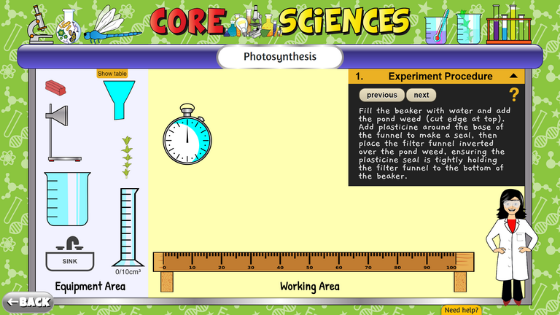
CoreSciences is offering a chance to win a completely FREE 6 month subscription for your school.
Parents and tutors can also win one of five 3 month subscriptions on offer.
Winners will be chosen on 30th September 2025.
The competition is open to all schools, parents and tutors, whether existing subscribers or not.
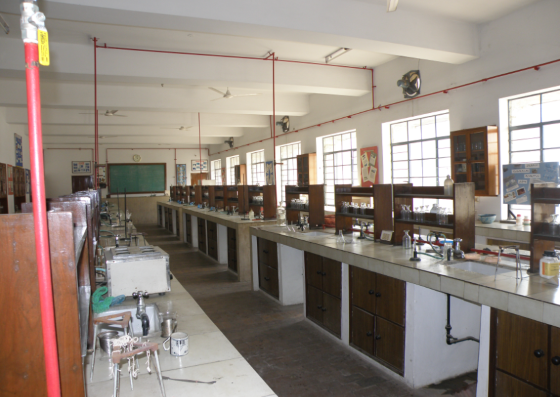
The impact on schools of structural issues like Raac (the discovery of unsafe concrete in school buildings) has created a new wave of disruption since covid, leaving students and educators grappling with unprecedented challenges once again.
CoreSciences: Bridging Gaps in Science Education
In 2017 CoreSciences addressed the growing difficulty teachers faced in delivering science practicals. With educators burdened by increasing responsibilities and dwindling resources, CoreSciences became a solution to these challenges. Developed over the past seven years by software developers at CORE Data Systems, in collaboration with experienced secondary school science teachers, CoreSciences focuses on providing extensive and unlimited access to interactive practical routines both within and outside the school environment.
The “Raac” Problem:
In the current scenario of Raac-related building closures affecting 231 schools in England, the disruption has left students anxious about their academic future. Many of the schools affected buildings are specialised teaching spaces such as science labs which cannot easily be substituted for in other spaces within the schools. The government’s reluctance to alter exams in response to these challenges has heightened concerns among parents, teachers, and students as detailed in recent new articles:
https://www.bbc.co.uk/news/education-67781489
https://www.bbc.co.uk/news/articles/cw0d7l4x930o
The Role of CoreSciences in Mitigating Disruptions:
As described in the above BBC news coverage, schools like Hadleigh High School in Suffolk have been compelled to make significant changes to their teaching of practical work due to Raac related closures of all their science labs:
“Hadleigh High School in Suffolk is currently unable to access any of its six science labs. Pupils who should be conducting experiments with Bunsen burners and test tubes are instead learning theory in two-storey portable classrooms”.
However, since then the recent implementation of CoreSciences by Hadleigh High School for their years 9, 10 and 11 has given them new flexibility to adapt to these unexpected challenges to help maintain essential teaching continuity and engagement between students and their practical work.
The platform’s online teaching and learning modules provide an alternative for students to access interactive practical routines for ALL their Required Practicals, compensating for the closure of science laboratories.
The Platform’s Wider Positive Impact:
Beyond assisting teachers and students, CoreSciences plays a crucial role in engaging parents and reaching student groups without access to practical experiments for all kinds of reason, including homeschoolers. By offering a comprehensive approach to science education, CoreSciences mitigates the adverse effects of disruptions, ensuring that students have a higher chance of successfully completing and understanding their practical experiments.
Adapting to Change:
As schools grapple with this new disruption to teaching, CoreSciences emerges as a transformative force in science education. By providing an innovative and adaptable solution CoreSciences not only aids teachers and students in navigating obstacles but also ensures that practical components of the GCSE science curriculum remain accessible and effective. In times of crisis, CoreSciences stands as a testament to the power of technology and education working hand in hand to help overcome learning challenges still being faced by students.

Hundreds of thousands of members of the National Education Union will walk out over seven days in February and March to escalate their pay row. As many as 23,400 schools could be affected by the decision.
There are no guarantees that in-person learning will go ahead during the days teachers go on strike. During this time schools will be struggling with resources to teach pupils without the assistance of teachers. They might be able to keep some children in class with reduced staffing, supply teachers or feel they are left with no choice but to close up altogether.
With CoreSciences, supply teachers can still deliver classes. CoreSciences makes the home education process much easier for both students and supply teachers. The platform is easy to use and caters for GCSE science students of all abilities, including SEND students as well as those that may seek more of a challenge. All required practicals are performed via hands-on, fully interactive lab simulations with unlimited access, ensuring safe completion of essential experiments with no need for equipment or a lab. This makes CoreSciences a great solution for supply teachers with limited resources.
More and more schools are moving to online teaching and less textbooks are being used as teachers are adopting online resources. CoreSciences is an online teaching and learning platform that focuses on the required practical components of the GCSE science curriculum.
A Department for Education spokeswoman said the government was increasing core funding by £4bn this year and helping schools “get the best value for money from their resources” by recommending deals to manage energy costs and looking at other ways schools can teach students at half the cost.
As well as assisting teachers and their students, CoreSciences also engages parents and those that may not have access to practical experiments such as home- schoolers and other student groups allowing it to be accessible to students across the UK no matter what financial background they come from.

What students think about the services they receive has not typically attracted the attention of the education system. The decisions are made by policymakers, educators, parents, and administrators.
Asking children about the value of education, their experiences with it, or their suggestions for improving it has been criticised as being naive or tokenistic because it is assumed that children won’t know what is best for them or will make unimportant demands.
As a part of their report, the HundRED conducted a student survey, questioning 322 students who were educated in 19 countries and identified as 56 different ethnicities ‘What they think about school?’.
61% of students want better learning environments, which was the second largest concern for students. Learning environments are rarely raised as a serious cause for concern, and hardly ever feature in future plans laid out by governments and education organisational bodies.
It’s therefore surprising that so many young people picked up on this as a major need for improvement.
Some of the results of asking students what they think about their education are alarming. From late 2021 to May 2022, the US-based nonprofit Transcend Education polled more than 20,000 students about their educational experiences. It found:
- Only 35% say they get to learn about things they’re interested in
- Only 29% say they have a say about what happens to them
- Only 31% say they can choose how to do their work
Students have been speaking forever. What seems to be changing is the recognition that kids need more and that they have insights (they also have social media accounts, which helps amplify their message). The result, in some cases, is that more adults are turning up to listen.

The government has confirmed its plans to help schools and other non-domestic energy users with their energy bills this autumn.
Ministers say their plan to reduce rates to a “government-supported price” of £211 per megawatt hour for electricity and £75 for gas will equate to a saving of £4,000 for a school paying £10,000 a month for energy.
A head teacher said his school could no longer afford new text books after its gas bill went up by more than £100,000.
Vic Goddard, the head of a trust made up of four schools in Harlow, Essex, said he was struggling to sleep because of the “frightening” situation and could “no longer afford books”.
“I came into this job to make a difference, but how can I do that when we have no resources?” he said.
“If a teacher comes to me and says we need new text books, I will have to say no because we can’t afford it,” he said.
The government said it was increasing budgets for schools and recommending energy deals.
More and more schools are moving to use of online teaching resources to compliment their traditional resources and which helps reduce dependencies on textbooks. CoreSciences is an online teaching and learning platform that focuses on the all required practical components of the GCSE science curriculum and all associated curricular topics.
A Department for Education spokeswoman said the government was increasing core funding by £4bn this year and helping schools “get the best value for money from their resources” by recommending deals to manage energy costs and looking at other ways schools can teach students at half the cost.
As well as assisting teachers and their students, CoreSciences also engages parents and those that may not have access to practical experiments such as home-schoolers and other student groups allowing it to be accessible to students across the UK no matter what financial background they come from.
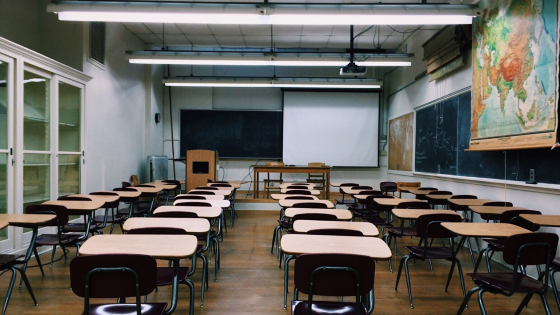
A-Level results day is one of the most nerve-wracking experiences in a student’s life – and it’s finally here.
This year’s A-Level students saw the biggest drop in top grades on record. Around 600,000 fewer A and A* grades have been awarded this year as the Government tries to calm down on record grade inflation.
Education minister Will Quince has said that the UK must return to a position where qualifications “maintain their value”.
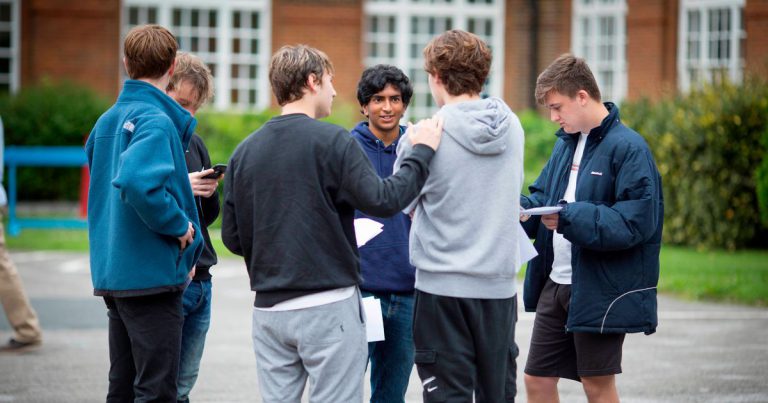
Some students were given advance information on the content that would be in their exams, while others could choose which questions they answered. A way that students can prepare for both ways is using better revision aids such as CoreSciences that help students do better in their exams than what they’re predicted.
Mr Quince said it is “really important” for employers and universities that we return to the pre-pandemic approach of examination.
The prospect of lower grades will inevitably leave some students disappointed, but the education minister stressed that “universities will adjust accordingly” – and average grades will still be higher than they were in 2019.
He went on to say that students missing the grades they were predicted or hoping for is nothing new, adding: “That’s why it’s really important that young people recognise and know that there are loads of options open to you.
“You may still get into the university that was your first choice, you may go through clearing or go to another university – that’s why it’s really important to have a Plan B.
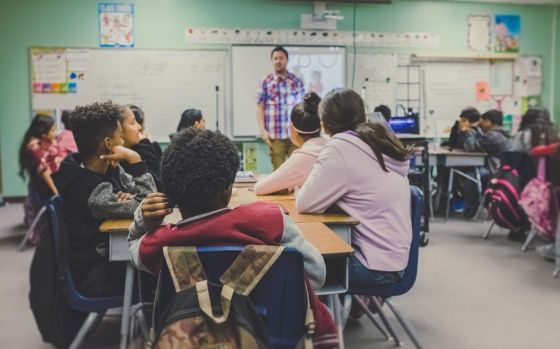
A recent study investigated potential links between students and how their schools influence the likelihood of them staying in school or leaving prematurely: teacher support, connectedness to school, and the use of detentions, suspensions and expulsions were all found to be relevant.
The central question was “how can the school system improve schooling from the perspective of students that like it the least?” 1,002 students in grades 7-10 from three complex secondary schools were surveyed. These are the types of schools with the highest suspension and lowest retention rates.
What was found?
Two-thirds of the study sample said they like school. Almost half of these students said they had always liked it. One of them said:
“Love it. I’d prefer to live at school. Like, if Hogwarts was an actual place, I’d go there.”
One-third of students said they do not like school. Although school liking was highest in grade 7, most students indicated their dislike began in the transition to high school.
“Yeah, it was probably as soon as I hit high school. Year 7 things got a lot harder.”
This dislike appears to increase over time, with grade 9 having the highest proportion of dislikers. These patterns correspond with suspension rates, which double in grade 7 and peak in grade 9.
While “friends’ was the most-liked aspect of school for both groups, a much higher proportion of school likers than dislikers chose “learning”.
“I feel like every day I go to school, I just flex my knowledge. I like to learn. Learning’s alright.”
The learning aspect of school can be challenging for some so it’s crucial that teachers are able to make subjects interesting and engaging. As well as assisting teachers and their students, CoreSciences also engages parents and those that may not have access to practical experiments such as home-schoolers and other student groups.
Lessons can be delivered by teachers in the normal course of their schedules, but also the easy-to-follow format ensures that even teachers without a science specialisation can competently deliver the content – avoiding the need for costly supply teachers or loss of valuable lesson time.
The findings from the study support that having a mix of interactive learning, engaging and effective practical lessons can be delivered as preparation for real experiments, or even instead of them without compromising the learning experience and this can be done with CoreSciences.
Lessons can be followed up with homework and revision modules, all neatly linked together by topic to ensure continuity – ideal for reinforcing lesson content after classes. Lesson content and the required practical routines are also ideal for students at home who may miss classes due to absence.
Remote learning using CoreSciences can be a very effective alternative to in-class teaching for absentee students while still allowing teachers to monitor their progress, provide interventions, and set targets.
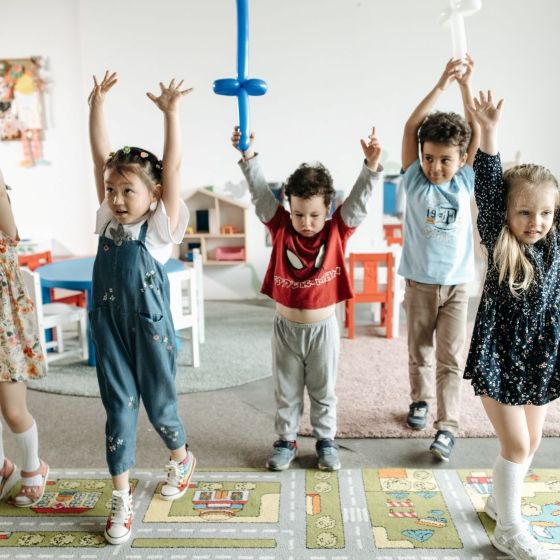
A decade since a Scottish head teacher set up a project to encourage students to run or walk for 15 minutes during their school days, researchers have found the students taking part are mentally and physically sharper than those who do not. Primary students who took part in a running program, such as the Daily Mile, for longer than three months were fitter than those who did so for a shorter period.
Dr Josie Booth, from the University of Edinburgh’s Moray House School of Education and Sport, said: “Taking part in the Daily Mile each day can improve pupil fitness and while we did not find longer term benefits for cognition and wellbeing, there was no substantial negative impact either. “The health benefits of physical activity coupled with the immediate benefit, which supports learning, makes such physical activity breaks worthwhile and should be considered by class teachers and school management, as well as education policy makers.”
The study was the first to look at the long-term effects on psychological health of school-based running programs such as the Daily Mile, which involves children taking a 15-minute break from class to do physical activity.
It has been 10 years since Stirling head teacher Elaine Wyllie set up the Daily Mile Foundation, which now sees more than three million students across the world participate in its program. In the latest study, researchers at the Universities of Edinburgh, Stirling, and Highlands and Islands observed 6,000 students aged nine to eleven who undertook a series of cognitive function tests. Teachers guided students through a bleep test to measure fitness and then students completed bespoke computer-based tasks to measure attention and memory and reported their own wellbeing.
The team used statistical models to analyse the impact of a long-term running program on a pupil’s cognition, wellbeing and fitness. They also considered other factors, such as age, sex and socio-economic status. Findings showed fitness had a small but detectable association with better memory and thinking skills in students who had taken part for less than two months.

The recent updates to the government’s guidelines regarding remote learning have been branded as “unrealistic” and “a distraction” by heads and teaching profession leaders. The non-statutory guidance has triggered some teachers who feel as though the expectations set out by this new guidance system are unreasonable. Key expectations include: to deliver high-quality remote education when in-person teaching is not possible, and to secure appropriate internet connectivity solutions where possible, which many teachers feel is a “huge demand”.
Furthermore, the Department for Education emphasises that remote education should only be considered as “a short-term measure” and “as a last resort”, and also when in-person attendance is “not possible” or “contrary to government guidance”. Schools should also provide opportunities for regular feedback and interaction with teachers and peers throughout the school day.
However, Geoff Barton, from the Association of School and College Leaders has suggested that the DfE needs to be more realistic about school resources. He said that whilst schools want to ensure access to learning, especially in light of the disruption of the pandemic, “we need to be realistic about what is and isn’t possible in terms of providing remote learning, particularly at short notice”. Additionally, practical realities of the school day could prevent the ability to provide regular feedback to students at home. Others have also raised the fact that there is a digital divide within the country where poorer students may not have access to a computer or the internet.
As a resolution, the government has suggested that schools could overcome digital access barriers by distributing school-owned laptops, if possible. Schools should also consider providing printed resources. There should also be access to systems to monitor whether students are engaging with remote work, followed by a named senior leader who will be responsible for monitoring the quality and delivery of remote lessons.
Remote learning platforms such as CoreSciences offer solutions to some of the problems outlined by the new guidance system. CoreSciences enables progress tracking and monitoring of all student engagement, so teachers can ensure that each student or class is fulfilling their potential, even when teaching remotely. Performance reports and feedback can also be delivered outside of typical classroom hours. Therefore, teachers don’t have to worry about monitoring homeschooling students throughout the school day; both students and teachers can work at a time and pace that suits them.
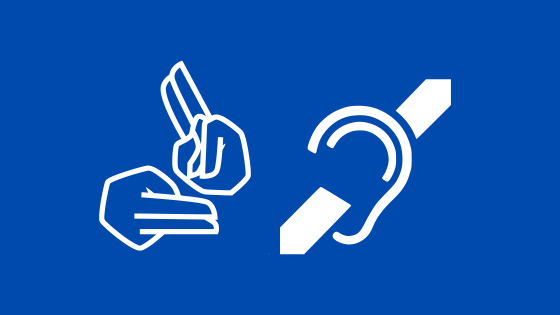
New research shockingly reveals that 40 out of 150 councils now have no specialist teaching units for deaf pupils, due to closures. Furthermore, the research shown by an interactive map by the National Deaf Children’s Society (NDCS), shows that nearly one in 10 units have closed in the past five years, with just 237 now remaining. As a result, deaf pupils are now at a serious disadvantage.
According to the NDCS, having specialist units for deaf pupils are an important option for parents when deciding where to send their children to school. This is because they enable deaf pupils to learn alongside their peers with additional support in a mainstream setting; this can include one-to-one teaching, help from specialist teachers and help with technology, such as hearing aids.
It is estimated that there are 45,000 deaf pupils in England overall. However, the interactive map provided by the NDCS reveals that are clear regional disparities across the country, where some regions have no specialist units at all. The map also highlights issues regarding a lack of specialist teachers who cater to deaf pupils in several areas. Many feel that support of deaf pupils is down to a “postcode lottery” and that more help should be provided to these pupils by schools and local authorities.
This is where online learning platforms such as CoreSciences may offer a solution. CoreSciences caters to SEND pupils through an easy to use, step by step interface, so that pupils can learn at a pace that suits them. The platform includes all required practicals via lab simulation as well as theory work, tests and games to keep them entertained. Best of all, the platform can be used in school or at home, so pupils don’t need to feel excluded from the rest of their class. Additionally, no further knowledge is required, so non-specialist teachers or parents can easily support them, regardless of ability.
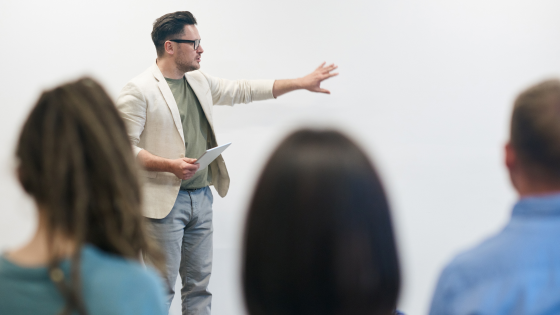
According to the latest data, one in 12 teachers were said to be absent from schools in England during the first week of term. As a consequence, numerous schools have been unable to find temporary staff to cover the absences. Furthermore,8.9% of teaching assistants and other staff were absent in all state schools, and 3.9% of students have been absent due to Covid-related incidents. As a result, due to high demand, ex-teachers have been asked to return to classrooms and help out by the government.
However, what if there was an alternative solution to this dilemma? And what if teachers and students could continue to work despite Covid-related absences? With CoreSciences there is a solution. As an online learning platform CoreSciences can be used anywhere you have an internet connection, which, let’s face it, is almost everywhere nowadays. Therefore, both teachers and students can continue with their lessons in the comfort of their own homes or anywhere else outside of school. All required practicals are performed via lab simulation, meaning no physical lab or lab equipment is required in order to conduct an experiment. Additionally, all theory work, tests, games and analytics are included and accessed completely online. Furthermore, our intelligent performance analysis system helps teachers and parents keep track of student progress, regardless of school absence, to ensure that each student is continuing to reach their targets.
Not only is CoreSciences a great tool to use remotely, it’s also great for less experienced teachers or supply teachers to use, making it particularly helpful when facing teacher shortages. The platform has been designed by teachers for teachers, so all the ready-made lessons plans are easy to deliver without pre-planning. Just simply sign up and follow our easy to use modules and step by step experiments.
Boost student grades by SUBSCRIBING from only £15 a month: https://coresciences.co.uk/subscribe
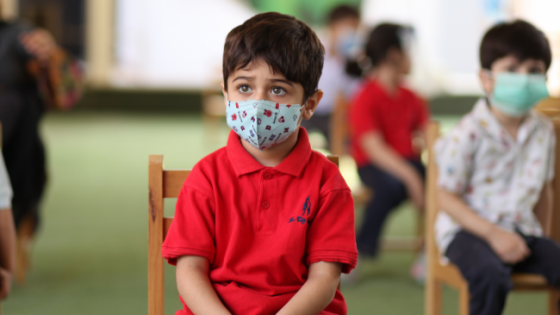
Ofsted inspections are to be postponed for the final week of term in order to give schools time to consider measures for potentially coping with the Omicron variant of the virus in January. Furthermore, the Department for Education (DfE) have stated that face-to-face teaching should still continue alongside the usage of face masks in communal areas for staff and pupils in Years 7 and above.
Additionally, isolation and contact tracing measures will still be in place, with any suspected/confirmed contacts of the Omicron variant being required to isolate for 10 days. As education secretary Nadhim Zahawi states: “we will continue to prioritise children’s and young people’s education and wellbeing, making sure education and childcare settings are as safe as possible and children continue to benefit from classroom teaching. ” Furthermore, Geoff Barton, general secretary of ASCL, has suggested that this new Covid variant imposes a further risk of increasing school absences: “it is therefore imperative that the government provides workforce funding to schools and colleges to help with the cost of supply cover for absent staff.”
This is why educators should look for alternative resources that can facilitate with any unforeseen absences, in advance. Online learning platforms such as CoreSciences are a great transitional tool to compensate for any potential in-class learning disruption. The flexibility of the platform enables a blended learning paradigm with ease. Not only can the platform be used remotely at home, it can also be used in class to support traditional learning methods – a perfect two in one system that prepares you for the unforeseen, but also complements any lessons that may already be planned. CoreSciences includes: required practicals via lab simulation, theory work, tests, worksheets, games and analytics – all the hard work is done for you so that you don’t have to.
Subscribe for as little as £15 a month.

A report has revealed that 1 in 4 private school teachers felt stressed by remote learning, due to parental pressure, during the lockdowns. Undoubtedly, the parent-teacher boundaries became blurred during the remote learning period, with some parents taking a more active approach to their child’s learning, much to the dismay of some teachers. Many felt that they were being scrutinised which made their work difficult to manage.
Whilst homeschooling has provided parents with more insight into their child’s education, as Christopher King, chief executive of IAPS (The Independent Association of Prep Schools) notes: “there have been opportunities for those parents who have chosen to go beyond the normal boundaries and have a level of access to the classroom teacher and to make judgements on the classroom teachers – whatever their prejudices might be – that quite a lot of staff have found intrusive and difficult to manage.” Parents do not always understand the context of the virtual lessons being conducted and are too quick to make judgements.
As a result of the increased scrutiny, teachers felt that their mental health had declined. Many were also concerned of the wellbeing of their students. This is where CoreSciences intervenes. CoreSciences is an online GCSE science teaching and learning platform that specialises in the required practicals via lab simulation. Additionally, theory work, test, games and analytics are also provided. Best of all, parents are kept in the loop every step of the way through real-time activity notifications that help to track students’ progress. The collective teacher and parental involvement also reduces pressure on teachers having to relay information back to parents, as they have full access to their child’s performance. Therefore, parents can rest assured that their child is getting the best out of their education.
Subscriptions for teachers, tutors and parents start from only £15 a month.
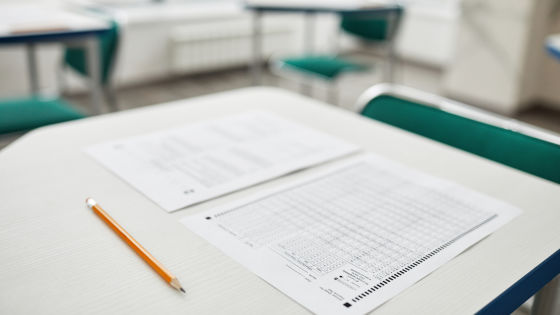
GCSE and A-Level pupils will be given a choice of topics and advance information in order to “maximise fairness”. According to the Department for Education (DfE) the decision was influenced by the learning disruption caused by Covid.
After a consultation that amassed over 6,000 responses, the decision is that for GCSE English literature, history and ancient history, students will be given a choice of topics, whereas there will be a choice of content for GCSE geography. As for the rest of the GCSE, AS and A-level subjects, advance information will be given in the spring. Furthermore, support materials including formulae sheets will be provided for maths, physics, and combined science exams.
Over 90% of students and parents were in favour of pupils being given advance information for exams, and approximately 80% agreed with offering topic choices. Unions have suggested that advance information should be provided earlier than the spring to help teachers prepare their students more effectively.
Meanwhile, Ofqual have set out a grading strategy due to the fact that a higher proportion of students have received top grades over the last couple of years in comparison to the years prior to the pandemic. It is estimated that students will most likely receive higher grades in 2022 than pre-pandemic. As a result, exams boards will set grade boundaries that reflect a “midway point between 2021 and 2019”. The usual grading profile is expected to return by 2023.
The Education Secretary Nadhim Zahawi stated that fairness was at the heart of the approach: “the measures we’re putting in place will help reduce the impact of the significant disruption this group of young people have had to face – allowing them to move onto the next stage of their lives.”
However, Dr Mary Bousted, joint general secretary of the National Education Union, pointed out that the new plans will not “allay the anxiety or answer the questions” that many teachers have. “Only giving advanced information about the exams in time for revision will result in a ‘topic lottery’ where some students will have happened to have covered the topics on the exam in sufficient depth and others may well have not.” On the other hand, Geoff Barton, general secretary of the Association of School and College Leaders, said he welcomed the “sensible set of measures”.
Credit: Andy Hayes at Sky News

New advice has been published by Ofsted with instructions on how to gather evidence on thorough investigations of individual subjects, as well as assess schools’ catch-up work.
Here are some of the key features Ofsted’s inspections teams will be looking out for:
Assess the Quality of Catch-up Tutoring
Tutoring is a significant part of the government’s pandemic recovery plan. Therefore, close attention will be paid to observe whether important class work is missing from these tutoring sessions or not. The new update suggests that a specific issue inspectors may come across is students being taken out of their usual lessons for tutoring sessions. In which case, inspectors will carefully observe whether these tutoring sessions may interfere with their other classes. Furthermore, inspectors will want to investigate how timetables are being managed in order to ensure that catch-up tutoring and regular lessons are being balanced.
Less Expectation for Teachers to Lead in More than One ‘Deep Dive’
As a way of gathering evidence for its curriculum-focused school inspections, Ofsted usually takes “deep dives” into particular subjects. However, inspectors have been informed that they should not expect some schools, especially smaller schools, to have a separate lead for each subject. Furthermore, they have been asked to “try to avoid carrying out deep dives into more than one subject with the same curriculum lead.”
Inspectors Should Not Carry Out ‘Mocksteds’
Inspectors have been instructed not to carry out mock Ofsted inspections, mock deep dives or train providers in how to pass inspections. It would be perceived as “a conflict of interest within the terms of an inspector’s contract, but it would also be a breach of their terms and conditions” by representing themselves as an inspector for commercial gain.
To Clarify Incidents of Off-Rolling
Ofsted has informed inspectors that they will be required to clarify where they find incidents of off-rolling (the practice of removing a pupil from the school roll without using a permanent exclusion when the removal is primarily in the best interests of the school). Previously, some inspections had identified that the practise was taking place in some schools but was not directly being referred to as off-rolling. As a result, some schools then had to issue press releases afterwards stating that off-rolling was not found because Ofsted did not use the specific term in its reports.
Ofsted Will No Longer Give Councils Early Notice of Inadequate Judgements
Previously, Ofsted provided early notification of provisional inadequate judgements in schools to the Department for Education and local councils in the area. However, Ofsted has now stated that local authorities will no longer need to be informed. Instead, they will only be informed when a final moderated judgement has been made.
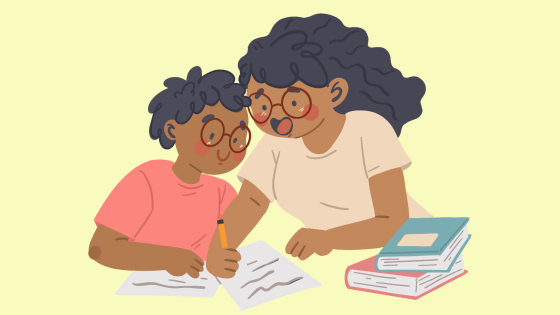
The Department for Education (DfE) plans to launch extra tutoring provision to complement the National Tutoring Programme (NTP). The government is upscaling its tutoring offer with £1 billion designated for 100 million hours worth of catch-up support over the next three years. The majority of the investment will go towards the schools themselves, which will then have the opportunity to either hire new staff, or use existing staff, to provide extra support to disadvantaged students.
The government hopes to launch tutoring plans as soon as possible. However, although experienced teachers can start immediately, teaching assistants and trainees will have to wait until November to complete the required training, which means many staff will be unable to assist with catch-up tuition until two months into the new academic year. The less experienced educators will then be required to complete an 11-hour training course before they are allowed to start their sessions.
This is where online learning platforms such as CoreSciences step in. All lessons, including theory work and required practicals via lab simulation are provided for, meaning that no extensive training is required in order to deliver a lesson. Both experienced and less experienced teachers and tutors can use the platform with ease in the classroom, either as a whole, or with individually selected students. CoreSciences saves both time and money for schools, tutors and parents. It also caters to disadvantaged pupils, such as SEND pupils, who may require further tuition and assistance.
From only £15 a month schools, tutors and parents can have immediate access to the platform with no training required.

A new survey conducted by the Royal Society of Chemistry has revealed that trainee and first year science teachers feel unprepared to teach science practical lessons due to Covid restrictions. More specifically, the research shows that more than half (52 per cent) of trainee and first year chemistry teachers said that they felt unprepared to teach practical chemistry lessons.
One teacher notes: “I have not been able to perform any class practicals at all. This is a huge section of the science curriculum that is completely untested.” Additionally, a TES survey of GCSE and A-level teachers confirmed that one in five schools had not yet reopened its science laboratories for practical work.
The limited access to laboratories has particularly caused concern amongst newly qualified science teachers. Many have “a fear of doing chemistry practicals because of limited experience of how to deliver one.” More experienced teachers have not had the time to fully assist trainee teachers with their career development due to Covid restrictions. Furthermore, this has had a negative impact on their overall school placement experience.
However, with newer technology development it is now possible for less experienced science teachers to teach required practicals with confidence. Online learning platforms such as CoreSciences fully enable teachers to deliver science practicals via lab simulation. No physical laboratory or lab equipment is required, meaning that there is no potential of risk or danger if any mistakes are to be made. The platform is incredibly easy for both teachers and students to grasp, ensuring that knowledge is quickly consolidated regardless of capability.
Overall, despite the current lack of support, newer science teachers do not need to feel excluded or out of their depth when it comes to teaching practicals. Online labs are a safe and simple way of teaching essential required practical routines and complementing their overall teacher training experience.
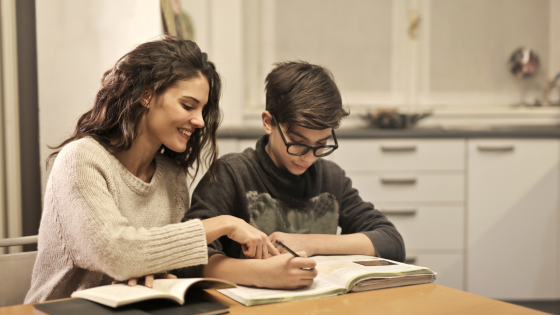
According to research, within the first eight months of the current school year the number of children being registered for homeschooling rose in the UK by 75%, with the main reason being due to anxiety around Covid. The Department for Education says it supports parents that are homeschooling and it plans to launch a registration system.
As well as anxiety around the coronavirus, many parents also felt that their child’s learning was regressing due to schools being shut which led to many taking matters into their own hands. The number of parents switching to homeschooling, and removing their children from the school register and notifying the local council, continue to increase.
Many parents see more benefits in their child’s education with long-term homeschooling as opposed to traditional in-school learning. Unlike face-to-face teaching, homeschooling can be tailored to a child’s individual needs, allowing them to thrive at a quicker pace. One parent mentions that her son couldn’t really thrive until looking into homeschooling: “He was starting to regress. They were doing phonics and he can read already,” she said. “The school said they couldn’t give him higher-level work.” Since homeschooling, her son is now thriving academically.
Some parents have also removed their children from school due to a learning disability. Covid has given these parents the final push to make the decision a permanent one. One parent claims that their daughter, who is awaiting a formal autism diagnosis, was struggling in school but thrived once at home: “We wouldn’t have had that break in school. I felt duty-bound to send her in, but because she wasn’t there, you could see how happy she was.” Another parent, whose child also has autism, claims that his family had a very difficult time finding special needs provision: “I think we had reached the limit of what we could do in the structure. From the experience we are having, I’d be hard pressed to think about going back.”
Although there will still be many parents that would prefer their children to continue their education in school, undoubtedly many children and parents are thriving with homeschooling as an alternative option. Online learning platforms such as CoreSciences make the home education process much easier for both students and parents. The platform is easy to use and caters for GCSE science students of all abilities, including SEND students or those that may seek more of a challenge. All required practicals are performed via hands-on, fully interactive lab simulations with unlimited access, ensuring safe completion of essential experiments with no need for equipment or a lab. This makes CoreSciences a great solution for parents that want to make homeschooling permanent but are afraid that their child may miss out – with CoreSciences they don’t have to.

Education secretary Gavin Williamson has recently outlined his plans for Ofsted, exams and catch-up funding. Here are some of his key education objectives for the near future:
Accelerated Ofsted Inspections
Williamson is considering accelerating the timetable of Ofsted inspections. There are some schools that have not been inspected for 14 years, and many of them wish to demonstrate their improvement.
Exam Fee Rebates
Schools are being charged a significant amount by exam boards this year and as a solution Williamson has suggested that exam boards will be expected to deliver a rebate to schools as they did last year.
No Pre-Pandemic Style Exams
Williamson has stated that for the 2022 cohort, an “extensive package of measures that was intended for this year’s awarding session supporting youngsters as they took their exams” would be on offer and that there would be no immediate intentions of reverting back to 2019 style assessments.
Schools Instructed Not to Close too Early
Some schools have apparently been closing far too early when they should be expected to stay open until at least 3.30pm. Extending the school day was an initial part of the government’s catch-up plans to support education recovery from the pandemic.
DfE Gathering More Evidence on Catch-up Funding
DfE is looking at how it could build up a greater body of evidence to support catch-up funding: “whether that is on teacher quality, whether that is on the issue of the massive expansion of our tutoring programme or whether that has been in the area of time and expansion of the school day”.

According to a recent Tes poll, 8 in 10 teachers believe that the workload for grading GCSEs and A Levels has been too intense. Two thirds of teachers have reported that they have lost at least a week of their own time to grading work. A Tes survey conducted of 2,800 teachers suggested that 64 percent worked for five working days or more on the process this year, whilst nearly 19 percent have claimed that they have worked an additional 10 days, and 13 percent have stated that they had spent more than 15 additional working days on grading students.
The assessment system this year has had a huge impact on teacher wellbeing. As one teacher remarked: “I have been marking every weekend and every evening for weeks – there have been some days where I haven’t had time to eat over a 24-hour period. I am running on empty – I am not sleeping and my wellbeing is significantly low.” Others have suggested that the extra work has also impacted their teaching of other year groups.
Teachers are also expecting to have to work over the summer holidays due to government incompetency. As Mary Bousted, joint general secretary of the NEU teaching union, stated: “Government have caused significant problems and unacceptable levels of workload for school and college staff by not properly preparing a contingency plan for grades early enough in the academic year. This was entirely avoidable and is therefore unacceptable. To make it worse, not only was planning and information about the process far too late, government has offered no support to facilitate relief for teachers, which would have enabled them to engage meaningfully in the grading process without piling on the workload.”
As some kind of consolation the NEU has suggested that education secretary Gavin Williamson should offer teachers a one-off payment of £500 as a reward for their extra work.

This year’s teacher assessed GCSE and A-Level grading system has put immense pressure on both teachers and students. Students particularly feel overwhelming pressure due to the amount of mock exams and assessments they have had to perform in order to generate evidence for their grades. Unfortunately, this has taken its toll on the mental health of many students.
Teachers are trying to be as emotionally supportive as possible, but at the same time they understand that they still need to collect as much evidence as possible in order to substantiate grades.
The system has also caused much confusion due to the fact that many students were led to believe that exams were cancelled and that coursework would determine grades. As a result many students have felt incapable of dealing with the sudden turnaround and have been struggling mentally.
General secretary of the National Education Union (NEU) Dr. Mary Bousted notes: “The arrangements for the grading have been so badly done, initiated so late, and teachers got the guidance so late – that it has resulted in a huge amount of unnecessary stress and pressure for both teachers and their pupils.”
However, schools and colleges are very aware of the pressure that students have been facing and many have very good pastoral systems established to provide students with much needed support.
Only time will tell as to whether students will be able to achieve good results despite the difficulties of the new grading system.
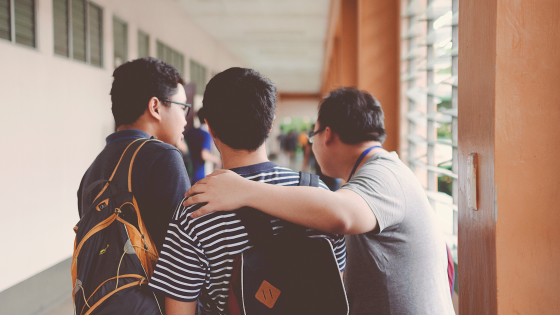
After a new study reviewing the experiences of 21 SEND pupils in mainstream primary and secondary schools, Ofsted claims that some of these pupils are not receiving sufficient support. Many of the schools and families that took part in the research had experienced long waiting times and high levels of bureaucracy in the Education, Health and Care Plan (EHCP) process. Furthermore, some families have even had to pay for additional support themselves.
Due to the pandemic, many SEND students have found it difficult to engage with remote education. Therefore, it is essential for these pupils to receive appropriate support. This requires a good understanding of these students’ individual needs as well as a strong relationship between families and schools.
Some of the main reasons for insufficient education standards include:
- Gaps in teacher and staff understanding of SEND pupils.
- Over-reliance on the use of Teaching Assistants (TAs).
- Social exclusion.
- Schools teaching a curriculum that is unable to meet students’ needs.
- Parents and carers not given enough information about their child’s learning and development.
- Teachers do not have enough time to fully support SEND pupils.
- Underfunding and inadequate government support.
On the other hand, online learning platforms such as CoreSciences are perfect for supporting SEND pupils and teachers. The platform is easy to use and enables students with special needs to learn GCSE Science at their own pace. Lessons can be performed as many times as required until knowledge is consolidated. Parents and teachers can also keep track of their progress and are notified when any tests and experiments are carried out, saving time and effort through automation. CoreSciences can also be used in the classroom and by students at home, ensuring that social exclusion does not have to compromise ongoing learning.
Overall, easy to use online learning platforms may be a solution to the educational disparity amongst SEND students within schools. Both SEND and non-SEND pupils can benefit from the extra support that online learning provides. Overworked teachers and parents can also rest assured that their children are getting their educational needs met but with less reliance upon their constant guidance.

In the first instalment of its research review series, Ofsted has determined what it believes to be the key principles of good science teaching. Through their inspections they are planning to closely examine how science is being taught in schools. Thorough subject investigation will be used to gather evidence concerning the quality of education in order to publish a new report in 2022.
These are the key principles Ofsted identifies as high quality science teaching:
1. Avoid Overuse of Assessment Items
Overuse of GCSE or A-level questions should be avoided as it supposedly “narrows the curriculum and leads to superficial progress that does not prepare pupils for study.” Alternatively, students should obtain knowledge from memory in order “to help them remember and organise their knowledge” and should be accompanied by teacher feedback.
2. Primary Schools Should Have at Least One Specialist Teacher
At least one specialist teacher is required in each primary school that specialises in science. There are concerns that science is being pushed out of the curriculum. Therefore, in order to reflect its status as a core subject, there should be stronger requirements to ensure there is sufficient teaching time dedicated to science.
3. More Time Should Be Given for Students to Consolidate Knowledge
To ensure high quality science education, sufficient time allocation should be given for students to embed knowledge into their long term memory. This can be achieved through substantial practise before moving onto a new topic. Students should also be required to differentiate between misconceptions and scientific ideas.
4. Avoid Separating Disciplinary and Substantive Knowledge
Ofsted warns that there is a “risk that by categorising knowledge as either disciplinary or substantive in the curriculum, it is taught separately”. Instead, students should be taught both and not just expected to acquire disciplinary knowledge by taking part in science practicals. Observation, classification and identifying variables should also be taught in relation to “specific substantive knowledge”.
5. Progression Includes Other Subjects
Schools should be consciously aware of the unity between scientific disciplines and other subjects, such as maths and science (especially maths in physics).
6. Online Learning Resources Should Match the Curriculum
Schools should ensure that the online learning resources they use appropriately match what the curriculum requires students to actually learn. Additionally, if science kits are used as a resource they also must “help achieve the curriculum intent”.
7. Students’ Limited Working Memory Capacity is Considered
High quality teaching should take account of the “limited working memory capacity” of pupils when planning lessons. Furthermore, pupils should not be expected to arrive at scientific explanations by themselves without sufficient prior knowledge.

Ofqual’s director of standards and comparability has stated that exam boards would request samples of work from every school for quality assurance. Some of the requirements include:
Schools Will Need to Provide Samples of GCSE and A-Level Work
Once schools submit grades, exam boards will request evidence from no less than five each of A-level and GCSE students. The requirements will be at least one A-level as well as two GCSE subjects, one of which will be English language or maths. Schools that only offer A-levels or GCSEs will be asked to submit work for only those qualifications.
Schools Will Be Given 48 Hours to Submit Evidence
Exam boards will select both the students and subjects required for the sample. Students will be chosen across the grade range and may also include private candidates. Boards will inform schools of which sampled work is required by 21st June. Schools must then submit all grade evidence for these students within 48 hours.
Comparisons Will Be Made Across the Qualification with Previous Years
Where the proportion of grades in 2021 appears much higher or lower than in previous years, exams boards will compare and select schools based on these results. Results for individual subjects can vary each year, especially for smaller cohorts. Therefore, comparisons for a school will be made at qualification level for all GCSE subjects combined and all A-level subjects combined.
Exam Boards Will Prioritise Schools Where Results Are Disproportionate to Previous Performances
Where results are significantly disproportionate to their historical results, exam boards will prioritise quality assurance checks for those schools. However, this is not to suggest that schools should award grades to match those in previous years. Instead, schools should record the possible reasons for these discrepancies.
More Evidence May Be Required if Exam Boards Have Any Serious Concerns
Upon review, schools will be contacted if exam boards have concerns about a school’s grading decisions, in which case more work may need to be provided. Furthermore, if the evidence does not support the grades that are submitted, schools will be asked to reconsider their grades. Exam boards can withhold results if they disagree with the school’s grades entirely.

Since the pandemic, many teachers have naturally moved into a hybrid teaching and blended learning model. Whilst some may still prefer more traditional methods, others have fully embraced the new approach. For many it has become second nature to use a mixture of online learning resources with homeschoolers, and face-to-face teaching with those in school. Learning has become more versatile to ensure those that may be isolating, or are unable to go to school, still receive access to education.
For many teachers, one of the top concerns they have is the wellbeing of their students. With a blended learning approach teachers can keep track of not only their students’ learning progress, but also their mental wellbeing. Some students have had no choice but to isolate at home, which can be very difficult in the long run, especially when many are able to go back to school. However, with hybrid teaching, teachers simply switch on the camera and then they are able to communicate with the rest of the class as if they were there. As one teacher expressed “you can truly see their faces light up by making them feel part of our class family, and that is my current priority. If this model had not been available, these children would have had a very ‘remote’ experience.”
Additionally, not only do students benefit from the approach, but parents too. Many parents feel more at ease with a blended learning option with the knowledge that their child can still receive teacher support at home without the risk of falling behind. Some teachers have even received requests for homeschooling from parents requiring that their family continue to shield at home for safety reasons. Furthermore, with social distancing measures in place, it can be difficult to fit a large class into a room whilst attempting to put these safety measures into practise. Therefore, by having some children homeschooling, it alleviates classroom overflow, making it a safer and more workable experience for all.
Overall, it seems that hybrid teaching and blended learning may be here to stay. The flexibility that the model provides ensures that no pupil gets left behind, giving many parents and teachers peace of mind. Some teachers have even observed how some students appear to be thriving even more since remote learning. As one teacher suggests “dare I say it but what if some children have come on leaps and bounds during this time, and not having the rigid routine, or time pressures, or the competitive nature of the classroom has perhaps allowed them to flourish?”

Summer is soon approaching, which likewise indicates that GCSE exam results are impending. After last year’s grading disaster through Ofqual’s predictive algorithm, many teachers fear the outcome of this year’s new grading approach. New government instructions require headteachers to carry out an “excessive” amount of assessments on students, as well as use historical data on their past performances, as instructed by Ofqual, in order to determine results.
Some schools are requiring students to sit as many as 35 exams over the next four to six weeks as a method of gathering sufficient evidence to justify awarding grades. However, many teachers feel that the new grading approach is unfair to pupils, and it has put English schools into a “state of panic”.
There are growing fears that there will be a repeat akin to last summer’s Ofqual algorithm catastrophe. The algorithm was known to rely upon historical data about a school’s previous performance in order to determine the grades of pupils that were unable to take their exams during the pandemic. However, as a consequence, many pupils at poor-performing and improving state schools saw their results were unjustly downgraded from their teachers’ prior assessments.
Mary Bousted of the National Education Union has suggested that there is a risk that Ofqual’s guidance could distort this year’s results too: “It may suppress the grades of a year group which has more able students than in the previous years. It could lead to injustices,” she said. “It’s imposing a data-driven outcome rather than an achievement-driven outcome.”
According to the Joint Council for Qualifications, teachers are expected to award students grades based on evidence, with more recent evidence considered as a superior representation of student performance. However, this has pressured schools into obsessively gathering evidence. As one headteacher states: “There is a danger schools will carry out too many exams when the whole point is that they were cancelled because everyone agreed that they couldn’t be carried out fairly. A range of evidence should be used rather than solely re-running exams by the backdoor.”
However, a Department for Education spokesperson believes that teachers will be trusted based on their own decisions to assess and grade their students. The Joint Council for Qualifications has published guidance to support teachers with their processes, including on using historic data in order to help potentiate consistency and fairness. They added that the guidance is clear that grading judgments should not be driven by this data.
A spokesperson for Ofqual clarified that to ensure assessments are not overly lenient or harsh, it is necessary to consider the performance of this year’s students compared to previous years when exams have taken place as part of their overall quality assurance. Information from previous years will not be used to artificially suppress grades.
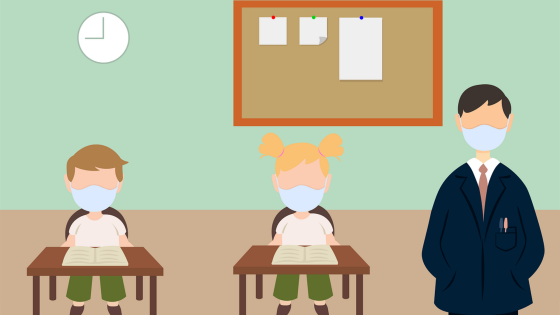
With lockdown rules relaxing in the UK this month, some teachers are concerned that this will discourage students from following Covid safety rules. Teachers’ leaders have warned that a potential third wave of Coronavirus cases could threaten schools after Easter unless strict safety measures remain in place.
The NASUWT teachers’ union have suggested that the government shouldn’t “remove or water down the current guidance” when pupils return for summer term. With the success of vaccinations, the ease of lockdowns and the decline in Covid-19 cases, there may be the temptation to relax safety measures too soon. Instead, it is advised that secondary school pupils should still be required to wear face masks, when social distancing is unattainable, in order to prevent a third wave.
Furthermore, relaxing the guidelines within schools could also send the message to students and parents that the threat of Covid has passed when in reality caution still needs to be exercised. As Patrick Roach, general secretary of the NASUWT states: “We are not out of the woods yet and maintaining the highest levels of Covid security in our schools is critical as we move into the new term in order to protect the safety and health of teachers and learners”.
According to a recent union survey, many teachers are in support of the use of face masks within secondary schools. However, not everyone is in favour of the requirements. Last month, MPs heard that school leaders had received “threatening letters” from parents who did not want their children to wear face coverings.
Although education leaders do not want to see staff or students wearing face masks for longer than necessary, many feel that precaution is still imperative in order to ensure school safety. The government will continue to review guidelines before the summer term where final decisions will be made.
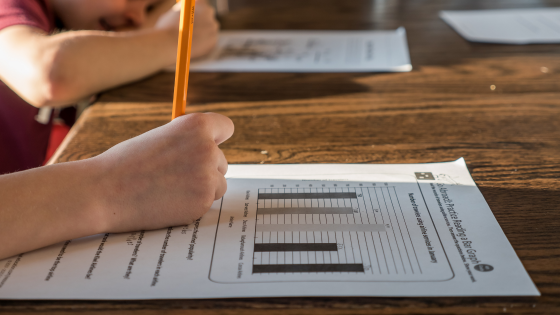
Since the dependency of online learning due to Covid, some are predicting that it could lead to the transitioning of paper to online exams much sooner than expected. The Department for Education (DfE) has suggested that a shift in attitude towards digital GCSEs has occurred due to the cancellation of summer exams. Sources close to exam discussions with the DfE have stated that prior to the pandemic there was some scepticism towards the concept of electronic exams. However, due to the the disruptions caused by the pandemic, many are now open to the idea of introducing them.
With that being said, it could take a few years before the transition becomes a reality. Colin Hughes, chief executive of the exam board AQA, has suggested that over the next 2-3 years: “we run a series of pilots, schools get used to using online assessments, they prove to be reliable, and then there comes a moment where you can flip the switch”. Furthermore, Hughes believes that technology risks and assessment issues will not be a problem, but rather that the readiness of schools and students needs to be considered.
Online exams are already a reality in Wales. On-screen assessments were introduced for children in Years 2-9 back in 2018. Assessments are said to be completely adaptive where the level of difficulty adjusts during the exam as pupils answer questions. However, the process could take longer to appear in England due to the time needed to fully trial the concept, as well as acquire the investment behind it.
It seems that the pandemic has sparked a rapid change in favour of educational technology and online learning. Within the next few years the education system is likely to see vast changes and improvements in all areas of the schooling system ranging from examinations to teaching itself. Ultimately, the future for current and subsequent students appears to be both exciting and promising.

Over the years technology has increasingly become a larger part of the schooling system, and the last 12 months has consolidated its existence within the future of education. School closures due to Covid, and the dependency on homeschooling in its place, have introduced teachers to a wealth of technological innovations to use within the classroom, many of which are here to stay.
Here are some of the features that have changed:
- Homework and Revision
One of the key areas within the classroom that teachers feel technology has improved is homework and revision. Some online learning platforms that teachers have found to be particularly useful are Microsoft Teams, Google Classroom, and CoreSciences. As one teacher remarked about Teams and Classroom: “with both platforms you can add parental/guardian emails so that they can receive a weekly digest of the assignments that their son/daughter received, whether they have been completed or not, and any grades associated with it”. As for CoreSciences: “my students have told me that they really enjoy using CoreSciences. They also comment on how quick and easy it is to learn what they need to know about each required practical. It’s such a useful learning tool that it’s become an essential part of my students’ learning experience. I can’t imagine replacing it with anything else.” These remote learning tools not only help teachers but they also help parents keep track of their child’s work.
- Interactive Classroom Displays
Another useful feature has been interactive classroom displays. Interactive image editing platforms, such as Thinglink, enable interactive images to be made by embedding images, videos and songs. Teachers can then create virtual classrooms that their students can interact with at home, by clicking on various links on the display, as if they were at school.
- Parents’ Evenings
The future of parents’ evenings are also set to change. Both teachers and parents feel that virtual meetings are far more effective and time efficient than having to physically meet in person. It also gives working parents more flexibility to catch-up with teachers rather than having to rush to an appointment, making it an overall smoother and more positive experience.
- Audio Feedback
How feedback is delivered to students has also evolved. Some teachers have been using audio feedback as a way of offering advice. Both students and staff have found listening to constructive feedback via recordings to be particularly useful as it feels more personal and students can pause the recording to reflect on any important points that are made. It also saves teachers from extensive marking.
- Pre-recorded Video Lessons
Finally, pre-recorded video lessons have been an important remote learning feature that will be here to stay. Teachers have accumulated a large bank of videos over the homeschooling period that can be reused for revision. They can also be used to help students who may have missed a lesson, or taken some time out of school, and help them catch up.
It seems that many aspects of remote teaching will be here to stay, and that a blended learning approach will remain as part of the new normal within the classroom. Technological advancements will inevitably grow over the years and we will see how they continue to improve the future of education.

With students back at school in the UK this month, many are excited to meet up with their friends and dive back into school activities. Some parents are also happy to have the pressures of homeschooling taken off of their hands. However, some students have settled into the rhythms of remote learning and now feel slightly disrupted upon having to return to school.
Although traditional in-school learning most certainly has its advantages, it also has its disadvantages. Rigid schedules, early morning starts and more required preparation can certainly exemplify why remote learning may at times seem more desirable. Additionally, school bullies, disputes among friends and the pressures to fit into a social circle can also be avoided with homeschooling. However, this is not to suggest that social cohesion and development of social skills amongst young people is not critically important to their personal development.
Social reasons aside, some students have found that online learning has been beneficial for improving their overall educational experience. Some reasons include: being able to learn at their own pace, less distractions, increased focus and feeling less academic pressure in general. It can also instil a sense of responsibility amongst children as they learn to prioritise work for themselves.
Remote Learning can also be particularly helpful for students with learning disabilities. With the ability to work at their own pace, SEND students can feel more confident and less intimidated by the pressures that may arise within a classroom. They can also take breaks when required and then return to learning at a time that suits them. Some have found that their grades have improved since using homeschooling methods.
With education gradually returning to normal, it may be worth noting how the advantages of online learning can be utilised within the classroom for the future. The flexibility of a blended learning model is not only helpful for students but teachers too. Fully comprehensive platforms such as CoreSciences are the perfect way to transition between remote learning and in-school learning. Lessons can seamlessly be switched from home to classroom and vice versa with little to no disruption, making education easier for everyone.

With UK schools opening up this week after months of online learning, there has been some debate over whether students should be required to wear face masks in class or not. The government has recommended that secondary school pupils should wear masks for a temporary period of time until further assessments can be made. However, previously, some students only had to wear them in communal areas, whilst others not at all. Understandably, for some, this new change appears to be a source of contention.
Although many parents, teachers and school workers are supportive of the new guidelines, some parents have likened the enforcement of face masks to “child abuse”. Others have voiced concerns that students’ learning experiences may be impacted by the new rule as it sends the message that “the classroom is not safe”. It may also increase anxiety within some students and affect communication. The campaign group UsForThem, who are also against mandatory face masks, have raised the point that we are unaware of the long-term effects of wearing face masks on brain development, educational attainment, communication and children’s overall physical and mental health.
On the other hand, according to the World Health Organization and the government’s own Scientific Advisory Group for Emergencies, there is insufficient evidence to suggest that there will be issues to children’s development in the long run. Many believe that the benefits far outweigh the risks. Some teachers have also suggested that the use of face masks may actually build confidence amongst parents, teachers and students. Additionally, if any students struggle with prolonged mask wearing, individual solutions can be made for children that may be unable to adhere to the guidelines due to a health condition or disability.
Ultimately, both perspectives offer valuable insights into the wellbeing of children, but many just want to achieve normalcy as soon as possible, and mask wearing may just be the quickest way to achieve that. As one student expressed: “I just want to be back now, and I know my friends all feel the same. I can’t wait.”

With months of missed face-to-face teaching due to Covid, secondary schools in England may be asked to consider summer schools in order to help students make up for lost time. The government plans to provide extra funding to facilitate catch-up projects that will ensure “no child is left behind”.
Teachers and unions agree that the funding is a good start, but they have also warned against overwhelming teachers and students who may already feel burnt out. The government has therefore suggested that schools themselves can decide how and if they decide to run summer schools.
Education Secretary Gavin Williamson said that the average primary school will receive around £6,000 in extra money, and the average secondary school will receive around an extra £22,000. Head teachers can then decide how this money will be used such as for paying teachers overtime for extra teaching.
However, some parents are less keen on the idea of using summertime for extra learning. Some feel as though children will not be motivated enough to attend to more schooling over the summer. Many just want teachers and students to have a proper break. One parent commented: “My children have suffered enough with this pandemic and they will not attend any summer camps. We have all struggled to cope in these hard times, and stealing my children’s summer is not the way to go.”
Although there do not seem to be any perfect solutions to help students catch-up, summer schools do provide the option to help those that need support the most. It is more than likely that not all students will be required to use their summertime for extra schooling, but rather that teachers will decide who could benefit from some additional support.

Many teachers have raised concerns that the government’s plan to mass test secondary schools will be a “nightmare” as it may fail to catch asymptomatic carriers of the virus and will also give students a “false sense of security”.
With schools confirmed to reopen from the 8th March, millions of students are expected to take three COVID-19 tests as they return to the classroom at school testing facilities. After the initial three in-school tests, students will then be provided with home tests twice weekly. Staff will also be provided with two home tests each week.
However, there is some scepticism around the efficacy of the tests. According to the NEU teachers’ union many school leaders are “entirely unconvinced” that lateral flow tests are accurate enough to pick up positive cases amongst asymptomatic students because young people usually have lower viral loads than adults.
Logistical issues are also a concern for many teachers who feel that mass testing will be time consuming and pointless. For the average secondary school, that has approximately a thousand students, it could easily take up to two to three weeks to fully carry out all testing.
Many teachers also fear that students will not take the rules seriously if given a false negative result. Protective measures such as social distancing and hand washing may also dwindle as false confidence arises. Students may also fail to adhere to the twice weekly home testing, and it may be difficult for schools to enforce compliance.
Additionally, as a temporary extra measure, staff and students are advised to wear face coverings in all areas where social distancing cannot be maintained. Only time will tell if the government’s plan is effective enough to keep the virus under control within schools.

With the current and ever increasing demands of remote learning, many teachers are on the brink of burnout as they are struggling both mentally and physically. A survey from TES has reported that approximately 62 percent of teachers feel drained and mentally exhausted this term alone, whilst 17 percent feel “physically and mentally on the brink”, and 30 percent feel that they are “just about coping”. This is an alarming result, and it indicates that a significant overhaul is required in order to make online teaching and learning more sustainable.
Many teachers feel that the work load has significantly increased since teaching remotely. Live remote lessons have proven to be very challenging due to the level of detailed planning required, as well as a lack of flexibility. A greater dependency on email communication also makes it harder to stay in touch. It can also be difficult trying to make lessons interesting and engaging online, whilst also attempting to track each student’s progress and meet their individual needs.
Some teachers have even decided to resign altogether due to a lack of regard for teacher health, safety or wellbeing. Worryingly, an Ofsted report suggested that even a blended learning approach, which includes remote learning with face-to-face teaching, could also pose a threat to teacher wellbeing if not carefully thought through and structured. With an element of remote learning likely to remain in the future, changes clearly need to be made in order to ensure that future teaching strategy is better balanced and more manageable.
Are there any solutions to this problem? One solution may be to take advantage of online learning platforms that do a lot of the hard work for teachers. CoreSciences is a great example of this. As an online GCSE Science platform CoreSciences is fully comprehensive and includes lesson plans and tests for both theory work and all required practicals. It also provides detailed performance analyses of classes and each individual student which facilitates easy and accurate monitoring of student progress. Therefore, most of the arduous administrative tasks that teachers are currently struggling with are completely taken care of, freeing up valuable time and leaving them less like to suffer from chronic stress or burnout.
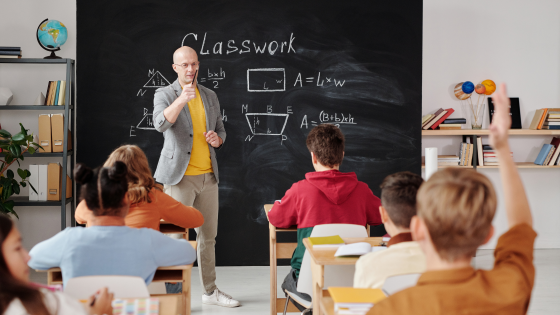
With multiple issues surrounding the pandemic, missed classroom time is one of the most serious, and it’s affecting the lives of pupils everywhere. Teachers have been asked to put in extra hours to compensate for the months of missed face-to-face teaching as a result of school closures. However, many teachers and parents feel like they are at breaking point with remote learning, and many students fear for their future. With the £1.3bn of funding that has been made available for catch-up programmes in England, has a solution to the problem been found?
Here are a few of thepotential ways in which the UK government plans to resolve the issue:
Summer Schools
PM Boris Johnson has not ruled out the potential of an extended summer term for pupils, and shorter summer school holidays, to help them catch up. The Education Endowment Foundation (EEF) has also suggested small summer schools, with qualified teachers leading small groups, as an alternative solution. According to chief executive Becky Francis, pupils need a strong academic element, although sporting and other fun activities may also be considered as they can contribute to the emotional wellbeing of children.
Weekly Tutoring Sessions
The government has assigned £350m in funding towards the National Tutoring Programme (NTP). According to four recent UK studies, one-to-one weekly tutoring sessions can help students achieve three to six months worth of academic progress. This is undoubtedly one of the most efficient ways of ensuring that pupils successfully make up for lost time.
Extending School Days
US research studies have suggested that disadvantaged pupils can benefit from longer school days. Robert Halfon, Chair of the Education Select Committee, has suggested that this idea should be considered as “a serious solution for the government to consider”. However, many teachers are already suffering from burnout, so the extra teaching time could be provided by “civil society instead of teachers”.
Repeating the School Year
The Education Policy Institute (EPI) has suggested that repeating the school year could help pupils whose education has fallen behind. However, the Association of School and College Leaders believes that the idea would only be practical for a small number of students. Head teachers have expressed interest in the idea but have indicated that large scale repetition would create “a log-jam in the system” and would also be costly.
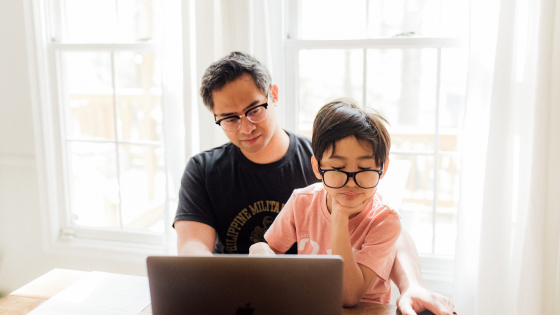
With the unexpected extension of the global pandemic and the never-ending series of lockdowns, the entire world seems to be irrevocably changed, and the education system isn’t exempt. With teachers and parents struggling to balance work with everyday life, comprehensive remote learning resources are more important than ever. Despite the initial cons and ill-preparation, as time has progressed, so has the quality of online learning.
Here are a few reasons why it may be here to stay:
Flexibility and Accessibility
Although schools may be restricted due to timetabling, remote learning resources such as CoreSciences allows students to learn at their own pace with unlimited attempts at hands-on science practicals at their disposal. Unlike traditional teaching, if a student feels like they have misunderstood a topic or are falling behind, they can simply log in and revisit the areas that need consolidating. Not to mention that this can be achieved from anywhere and not just within the confines of a school environment.
Cost and Time Effective
Homeschooling means less time and money spent on commuting or rushing to the next lesson on time. It also means less money is spent on costly lab equipment. With the vast improvements of online simulations, subjects such as GCSE science can utilise virtual lab simulations to perform required practicals – a much safer and cost-effective alternative to actual lab experiments. Less time and energy is also required from teachers for classroom preparation before their next lesson, and in monitoring student progress.
Technology is the Future
With a greater dependency on technology and AI in our world, it is interesting to note that by 2028 some are predicting that learning technology may go as far as to replace teachers in some settings, and even schools that fail to adapt. One theory suggests that personalised learning algorithms and basic AI automation will simply outperform the limitations of human teaching alone; effective 1-1 tuition for each individual student in a class of thirty at a time will be more easily catered for. However, at present, this begs the question: can distance learning replace traditional classes? Although most commonly held views suggest nothing could truly replace actual human interaction, for now at least, there are many aspects of remote learning that can certainly be implemented alongside traditional learning, and in many cases this is already happening. A blended learning approach is a very effective strategy for the present and near future, before we succumb further to an AI driven world.

In order to assist as many schools as possible we have decided to release a NEW subscription system that is tailored to fit more specific requirements. With our new two-tier system you have the choice of two different low-cost subscription packages to suit your needs. Here’s what you can get:
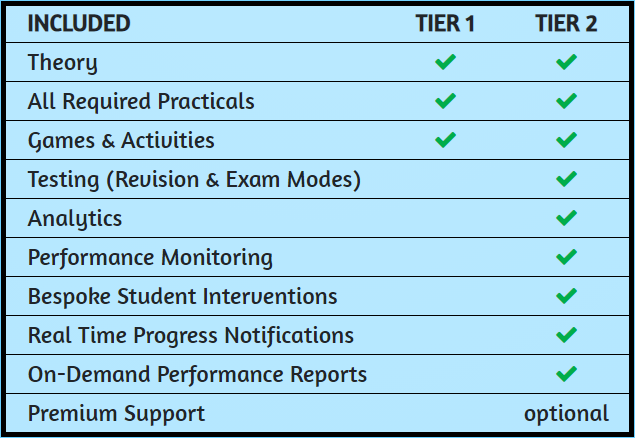
Furthermore, our subscription pricing is also significantly discounted for the time being in order to facilitate access to our platform for as many schools as we can during the current pandemic. Some subscriptions are FREE for the smallest schools and paid for subscriptions start from as little as just £100/year! To learn more about our pricing please visit our subscription page: https://coresciences.co.uk/subscribe
In addition to our new subscription packages we would also like to announce that we are now fully MAC and iPad compatible. CoreSciences is computer, tablet and mobile friendly!
With increasing numbers of Covid-19 cases threatening to cause further disruption you may be wondering how your school will cope with another potential lockdown? CoreSciences can help significantly as all our features are conducted as easily online as in class. ALL required practicals are fully interactive and can be completed virtually as many times as desired and scored for performance. Don’t forget we also provide testing, analytics, monitoring and games to make learning GCSE science fun. Our platform is perfectly suitable for both homeschooling and for in-school usage, so whether you’re a teacher, tutor or parent there’s bound to be a package to fulfil your teaching and learning needs regardless of your situation.

Given the sudden and dramatic change of circumstances it comes as no surprise that many schools have been less prepared than usual to deal with the situation at hand. With the prospect of little or no summer term and the cancellation of exams everything appears to be up in the air, and without the right resources it can almost be impossible for students to maintain their learning. This is where CoreSciences steps in; a fully interactive and extensive GCSE science platform that allows for remote teaching by teachers and home learning for students, along with detailed monitoring of student progress.
Teachers and parents respectively may find it difficult to engage their students remotely and at home. Certain elements of the curriculum have also become almost impossible to teach, such as required practicals. However, with CoreSciences teachers and parents can rest assured that all the hard organisational work is done for them. The platform includes ALL the required practicals via interactive lab simulations across all three sciences, which are highly engaging and fully immersive. In addition, all associated theory work and advanced testing and analysis are also included. There are also games and other activities to keep them both challenged and entertained, and to banish boredom whilst learning.
The platform caters to GCSE students of all abilities, including SEND students and those with learning difficulties as well as higher tier too. Students can learn at their own pace and redo practicals and tests as many times as required; enabling them to achieve high levels of success. Best of all, teachers and parents are also included with real-time activity notifications of tests and practicals, and the detailed performance analyses shows that students are completing all necessary work (or not).
With CoreSciences, despite the current difficulties many are facing right now, there is no reason why present KS3/KS4 students cannot continue with their learning and fulfil their full potential.
We currently offer three different subscription types for schools, parents and tutors. NHS employed parents are entitled to FREE subscriptions. Contact us to find out more: https://coresciences.co.uk/contact

It comes as no surprise that classroom sizes are increasing and that schools are struggling to cope with the surge. Statistics show that the number of pupils in classes of 31 or more has risen by 30% affecting almost 1 million pupils overall since 2010. Secondary pupils have been affected the most; approximately 21,843 were sitting in classes of 36 or more in 2018-19, a 258% increase since 2010. Unsurprisingly, this has put extra strain on schools and especially teachers who have to deal with an ever increasing workload with little in return.
Due to funding cuts, many schools simply can’t afford to hire a sufficient amount of staff. Therefore, larger classes are inevitable. This is extremely problematic because larger classes make it more difficult for teachers to provide support to pupils on an individual basis. Larger classes are also much harder to manage. As a result, pupils perform less well, teachers are stressed out and parents become more concerned.
Besides adequate funding, how can schools cope in the meantime? Here is where CoreSciences steps in. CoreSciences is an online teaching and learning platform for GCSE science that was developed with this particular issue in mind. The platform places particular emphasis on the required practicals via fully interactive lab simulations for all required GCSE practicals. This immediately cuts costs on expensive lab equipment/set-up and reduces the need for intensive 1-to-1 instruction. It also minimises the burden of health and safety issues within large groups.
Fully comprehensive lesson plans are also provided for teachers and it is extremely easy to use; no prior knowledge is required, making it easily usable by non-specialist teachers where schools may struggle to find enough specifically trained staff. Performance analyses, reports and notifications are all features that enable very precise monitoring of students’ progress at class and individual level. Classes can be managed all in one place, regardless of classroom size. Additionally, theory work and games/activities are also provided, making CoreSciences a truly comprehensive and cost-effective platform.
You can learn more about us here: https://www.coresciences.co.uk/learn-more

Who says that science has to be serious? Believe it or not, there is more to science than what you learn inside of a classroom. New and exciting discoveries are being made each day and as Einstein once said: “There are only two ways to live your life. One is as though nothing is a miracle. The other is as though everything is a miracle” and let’s face it, science is pretty miraculous. So take a break from those stuffy classroom textbooks and let us remind you why science has so much to offer.
1. There is enough DNA in the average person’s body to stretch from the sun to Pluto and back 17 times.
Humans have 23 chromosomes which contain around 500,000 to 2.5 million nucleotide pairs, and are from 1.7 to 8.5cm long when uncoiled. There are approximately 37 trillion cells in the human body. Therefore, if you were to uncoil all of the DNA encased in each cell and place the molecules end to end, it would add up to a total length of 2×1014 meters which is enough for 17 round-trips to Pluto.
2. The known universe is made up of 50,000,000,000 galaxies.
There are between 100,000,000,000 and 1,000,000,000,000 stars in a normal galaxy. It is estimated that in the Milky Way alone there may be as many as 100 billion Earth-like planets.
3. The average person walks the equivalent of five times around the world in an entire lifetime.
A moderately active person walks around 7,500 steps per day. If you maintain that daily average and live until 80 years old, you will have walked approximately 216,262,500 steps in your lifetime which equates to around 110,000 miles. This is the equivalent of walking about 5 times around the Earth, right on the equator.
4. Killer whales are actually dolphins.
Killer whales or orcas are the largest members of the dolphin family. The major attribute that determines that orcas are dolphins is the presence of a melon; a fatty deposit that assists the animals in echolocation (sound navigation) and only exists in dolphins.
5. When helium is cooled to almost absolute zero it becomes a liquid.
When helium is just a few degrees below its boiling point of –269°C, it can suddenly do things that other fluids can’t, such as dribble through molecule-thin cracks, climb up and over the sides of a dish, and remain motionless when its container is spun. Helium has become a superfluid; a liquid that flows without friction.
For future blog posts and to learn more about us visit CoreSciences.

According to recent news headlines there is a current crisis when it comes to supporting special educational needs students. Services for SEND students and children with disabilities are in turmoil with families experiencing delays of up to 90 weeks. Subsequently, the number of complaints from frustrated parents has gone up by 45% over a two year period to 2019. Councils are struggling after years of austerity cuts, and as a result, children with special needs are missing out on their education and parents are left to pick up the pieces.
At CoreSciences we try our best to cater to as many students as possible from a whole range of backgrounds and abilities; no child should be excluded. Our GCSE science platform is fun, fully interactive and easy to use. Unlike with traditional practical experiments, the platform eliminates any potential dangers that you may come across with an actual experiment, as all experiments are carried out via virtual lab simulation. Furthermore, this allows students to redo experiments as many times as desired, at their own pace, with no added pressure. Best of all they can practise in the comfort of their own home with no distractions.
Parents are also kept in the loop with real-time activity notifications so that they can see how their child is progressing and how they can further support them. Additionally, educational games and activities are included in order to keep them entertained as well as consolidate their learning.
Why not take a look at our demonstration video to see how the platform works? https://www.youtube.com/watch?v=6qQKL0MRTmY&t=13s
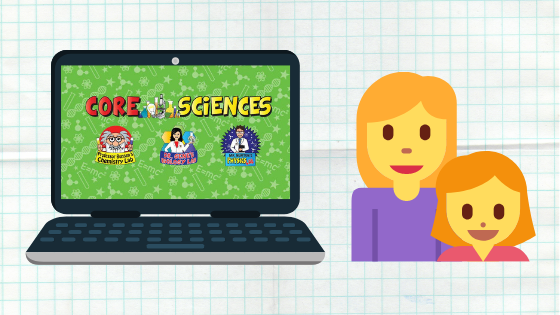
It comes as no surprise that the exam period can often be one of the most stressful times for both students and parents, and unfortunately parents often feel powerless when it comes to assisting their child through the process. CoreSciences was designed bearing all of this in mind.
CoreSciences is a unique, interactive online learning platform that empowers both students and parents. The platform places particular emphasis on the required practicals, which are some of the most challenging components for students to succeed in. Lessons are delivered via lab simulation where students are given unlimited opportunities to try again until they achieve their goals, unlike with physical practical experiments that have limitations. The platform is also particularly beneficial for students with learning difficulties or those with restricted access to learning facilities such as SEND students and homeschoolers.
So how exactly does CoreSciences include parents? Parents are sent real-time activity notifications that inform them of their child’s performance. Parental notifications provide information on when tests are undertaken and completed, what topics were covered and how well the student performed. Therefore, parents are always kept in the loop so that they can see how much work their child is doing and whether they are reaching their goals. Students’ performances in tests and practicals are also analysed, and strengths and weaknesses are identified which can be monitored by both parents and students. Interventions are automatically tailored to a student’s weaknesses, providing reminders to indicate what students need to focus on most.
Get the most out of your child’s education by subscribing to CoreSciences today.
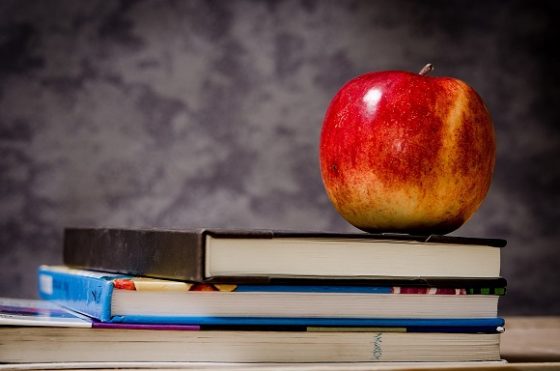
Statistics have shown that average classroom sizes in secondary schools have continued to rise for the fourth year in a row and are expected to continue to rise until 2025. Meanwhile, 10% of all secondary teachers left teaching last year and many continue to do so as government cuts and increasing workloads are driving teachers out of schools.
Furthermore, a survey of 885 schools by the Association of School and College Leaders has revealed that 73% had to put teachers not trained in the subject they were teaching in front of classes, while 84% said that teacher shortages were having a detrimental effect on the education they were providing. The subjects that have been most affected are maths (78%), science (75%) and English (57%).
These results are clearly troubling and there appears to be no immediate solution, which means that future generations of children will continue to be let down. This is where CoreSciences can help.
This online GCSE Science platform was designed to:
- Help teachers deliver effective science lessons without requiring any lesson preparation time.
- Help supply teachers deliver classes that may not be their speciality.
- Help engage students interactively in practical work safely and cost effectively.
- Monitor students’ performance and help improve their grades, whilst remaining very simple to use for both teacher and student.
With CoreSciences no specialist knowledge is required in order to deliver a lesson. All materials and lesson plans are provided which means that non-specialist teachers can feel confident that their students are learning what they need to know.
CoreSciences is unique in that it places an emphasis upon the required practicals via fully interactive lab simulations, backed up with theory and test modules for revision. These are often the most daunting parts of a science lesson and are often costly and time-consuming, especially for non-specialist teachers. However, with this platform teachers can rest assured that their students are gaining a thorough understanding of how to conduct a practical experiment. Practicals can be carried out as many times as required without the need for physical equipment and no mess, accidents, health and safety issues, or the overhead of setting up and breaking down apparatus.
For your free trial head to https://coresciences.co.uk/

CoreSciences is a new interactive learning platform that is designed by KS4 science teachers to help students with their GCSEs. The current curriculum puts a heavier emphasis on practical exams which now constitute 15% of the total marks. This can be problematic because students are usually unable to attempt practical experiments multiple times, which means that they have to deal with the pressure of trying to succeed the first time around. This can be extremely stressful for students, teachers and parents which is why CoreSciences offers the perfect solution to the problem.
Here are 3 reasons why your school could benefit from using CoreSciences:
1) It’s Cost-Effective
With all lessons being conducted virtually, including lab experiments, there are no worries when it comes to making mistakes. Students can rectify any mistakes they make and have multiple chances to try again, unlike with real life lab experiments. This also means that there is no messy lab aftermath to deal with or any need to repurchase pricey equipment. This makes the platform extremely budget friendly.
2) It Takes the Stress Out of Your Job
Lesson planning can often be difficult and time-consuming, especially when it comes to attempting to cater to the individual needs of each student. This is where CoreSciences can alleviate the stress. Fully comprehensive lessons can be planned in advance or at short notice without the need to use any other resources. All presentations, tests, worksheets, games and activities are provided for to keep students motivated and entertained. Teachers can decide whether their students work independently, in groups according to ability or as a whole class; lessons can be tailored to your students’ needs.
3) It Allows You to Track Your Students’ Progress
Powerful in-built tools allow teachers to easily access progress reports which display class and individual student performance according to specific topics and scientific aptitudes. Teachers and parents receive additional notifications when a student has attempted a test as well as progress indications. Teachers can also set targets for their students which will allow teachers to track student performance against expected levels.
Subscribe to CoreSciences today.
Contact us so that we can arrange to provide you with a free trial. We aim to respond within 1 hour, and have you setup shortly after.